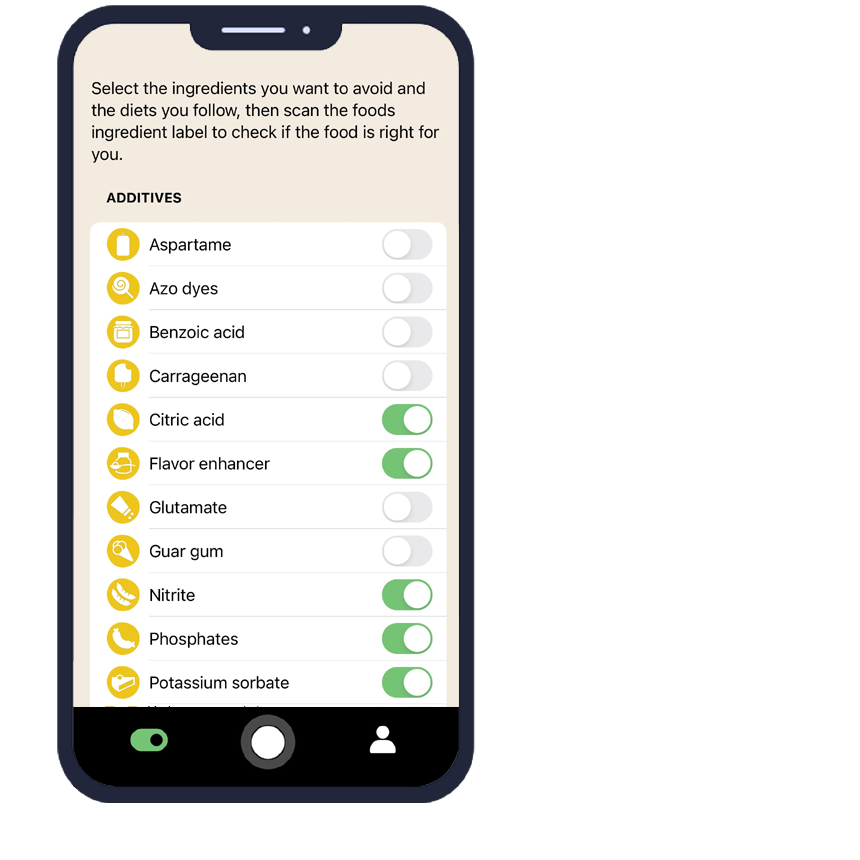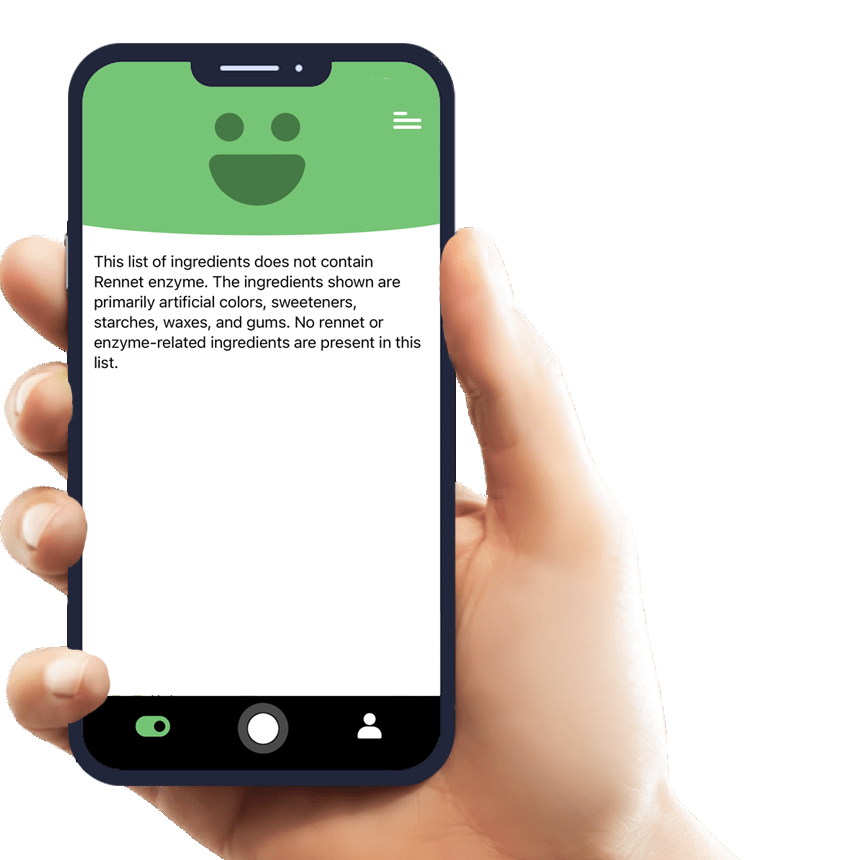Everything You Need to Know About Aspartame and How AI Eat This Can Help
Aspartame is one of the most widely used artificial sweeteners in the world, found in thousands of food and beverage products. For many consumers with dietary restrictions, health concerns, or specific intolerances, identifying and avoiding Aspartame can be challenging when reading complex ingredient labels. The AI Eat This mobile app revolutionizes this process by instantly scanning ingredient lists in any language, helping users make informed decisions about their food choices and maintain their preferred diet safely.
Whether you're managing dietary restrictions, have concerns about food additives, or simply want to avoid artificial sweeteners, understanding Aspartame and having the right tools to identify it is essential for maintaining your health goals.
What Is Aspartame and Where Is It Used?
Aspartame is an artificial sweetener that's approximately 200 times sweeter than regular sugar, making it a popular choice for manufacturers looking to reduce calories in their products. This food additive is composed of aspartic acid, phenylalanine, and methanol, and is commonly identified on ingredient labels as Aspartame or by its E number: E951.
The widespread use of Aspartame in the food industry means it appears in numerous everyday products. You'll commonly find this artificial sweetener in diet sodas, sugar-free gum, low-calorie yogurts, and diabetic-friendly desserts.
Common Foods Containing Aspartame
- Diet soft drinks and flavored waters
- Sugar-free chewing gum and mints
- Low-calorie yogurts and puddings
- Diet fruit juices and sports drinks
- Sugar-free candies and chocolates
- Reduced-calorie baked goods
- Tabletop sweetener packets
- Some medications and vitamins
Is Aspartame Safe? What Does the Research Say?
Aspartame safety has been extensively studied and evaluated by major health authorities worldwide. The U.S. Food and Drug Administration approved Aspartame for use in food products after rigorous testing, establishing an Acceptable Daily Intake (ADI) of 50 milligrams per kilogram of body weight.
Similarly, the European Food Safety Authority has confirmed Aspartame safety for the general population, setting an ADI of 40 milligrams per kilogram of body weight. The World Health Organization has also evaluated this food additive and maintains that it's safe for consumption within established limits.
Regulatory Approvals and Guidelines
Multiple international health organizations have conducted comprehensive reviews of Aspartame safety data. These evaluations considered hundreds of studies examining potential health effects, including cancer risk, neurological effects, and metabolic impacts.
The scientific consensus supports that Aspartame is safe for most people when consumed within the established daily intake limits. However, certain individuals may need to avoid or limit their consumption due to specific health conditions or dietary restrictions.
Who Should Be Cautious with Aspartame?
While Aspartame is generally safe, some individuals should exercise caution or avoid it entirely. People with phenylketonuria (PKU), a rare genetic disorder, cannot properly metabolize phenylalanine, one of Aspartame's components, making Aspartame intolerance a serious concern for this population.
Some individuals may experience Aspartame intolerance symptoms such as headaches, dizziness, or digestive issues, though true Aspartame allergy is extremely rare. Those following specific dietary restrictions or preferring to avoid artificial additives may also choose to eliminate Aspartame from their diet.
How AI Eat This Helps You Avoid Aspartame
The AI Eat This app transforms how consumers identify Aspartame and other food additives in their groceries. Using advanced artificial intelligence and camera technology, the app instantly scans ingredient lists on any food package, regardless of the language or country of origin.
When you scan a product with AI Eat This, the app immediately identifies if Aspartame is present and alerts you based on your personalized dietary preferences. This feature is particularly valuable for people managing dietary restrictions who need to quickly and accurately identify potential problem ingredients.
The app's personalized filtering system allows users to set up custom alerts for Aspartame and other ingredients they want to avoid. Whether you're concerned about artificial sweeteners, managing food intolerances, or following specific dietary guidelines, AI Eat This provides instant, reliable ingredient analysis.
Beyond simple identification, the app maintains a comprehensive database of alternative names and E numbers for Aspartame, ensuring you won't miss this ingredient even when it's listed under different terminology on international products.
Tips for Maintaining an Aspartame-Free Diet
Successfully avoiding Aspartame requires a combination of label-reading skills, product knowledge, and the right tools. Start by familiarizing yourself with Aspartame's various names and codes, including E951, which appears on European product labels.
Focus on choosing whole, unprocessed foods whenever possible, as these naturally don't contain artificial sweeteners or other food additives. Fresh fruits, vegetables, whole grains, and lean proteins form the foundation of an Aspartame-free diet while supporting overall health goals.
When shopping for packaged foods, use the AI Eat This app to quickly scan ingredient lists before making purchases. This approach saves time and ensures accuracy, especially when dealing with products from different countries or in unfamiliar languages.
Consider exploring natural sweetener alternatives like stevia, monk fruit, or small amounts of honey and maple syrup if you need sweetening options that align with your dietary restrictions. Many manufacturers now offer products sweetened with these alternatives instead of artificial options like Aspartame.
The Future of Food Safety and Dietary Management
Technology continues to revolutionize how consumers manage their dietary restrictions and make informed food choices. Apps like AI Eat This represent a significant advancement in food safety tools, making it easier than ever to identify and avoid specific ingredients like Aspartame.
As awareness of food additives and their potential effects grows, having reliable tools to navigate complex ingredient lists becomes increasingly important. The ability to instantly scan and analyze products empowers consumers to take control of their dietary choices with confidence.
Conclusion
Understanding Aspartame and its presence in food products is crucial for anyone managing dietary restrictions, health concerns, or personal preferences regarding artificial sweeteners. While regulatory authorities like the Centers for Disease Control and Prevention support Aspartame safety for most people, individual needs and tolerances vary significantly.
The AI Eat This app provides an invaluable solution for identifying Aspartame and other food additives quickly and accurately. By combining advanced technology with user-friendly design, the app empowers consumers to make informed decisions about their food choices while managing their dietary restrictions effectively.
Take control of your dietary management today by downloading AI Eat This for free testing and experience how technology can simplify your journey toward healthier, more informed food choices. Whether you're avoiding Aspartame due to intolerance, personal preference, or specific health requirements, the right tools make all the difference in maintaining your dietary goals successfully.

70 filters
With over 70 filters, you can easily avoid certain ingredients and follow your dietary preference.

Paleo

Pescetarian

Ultra-processed food

Vegan







































































